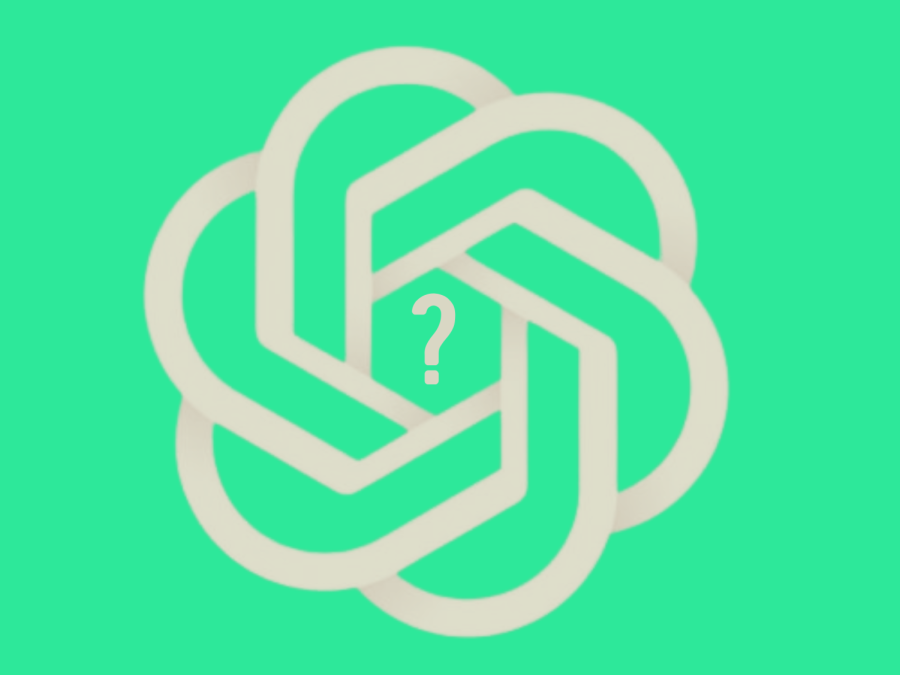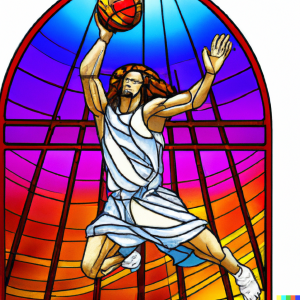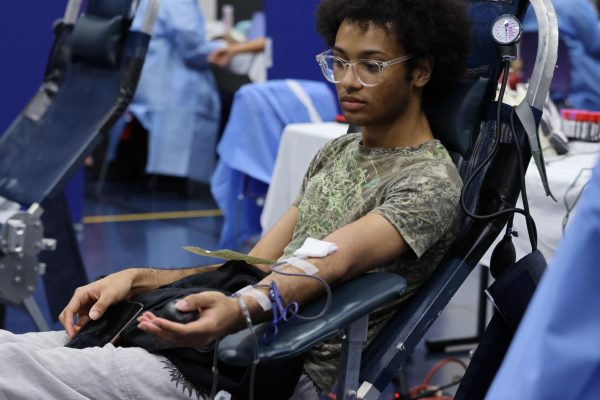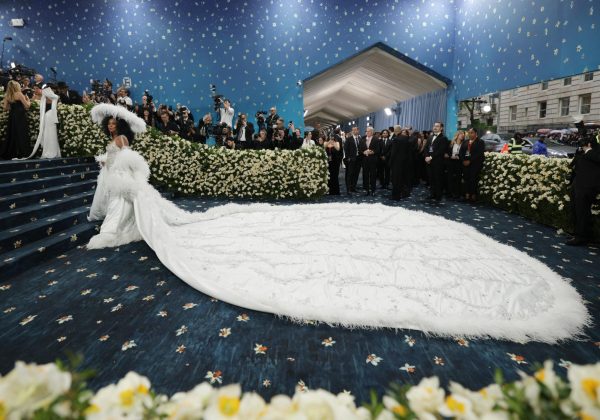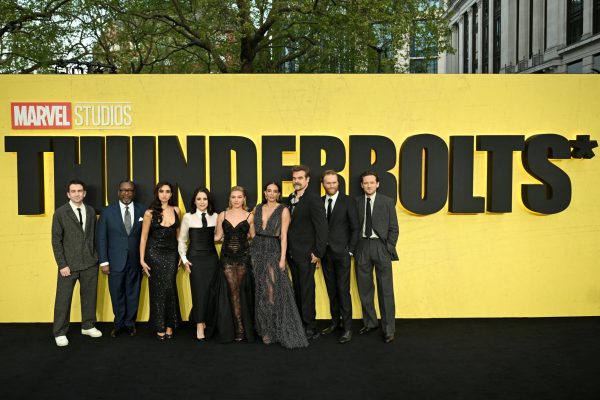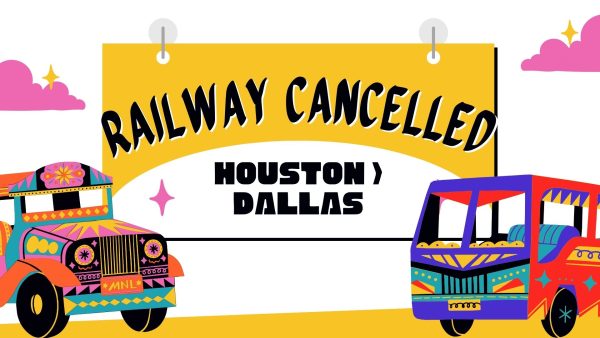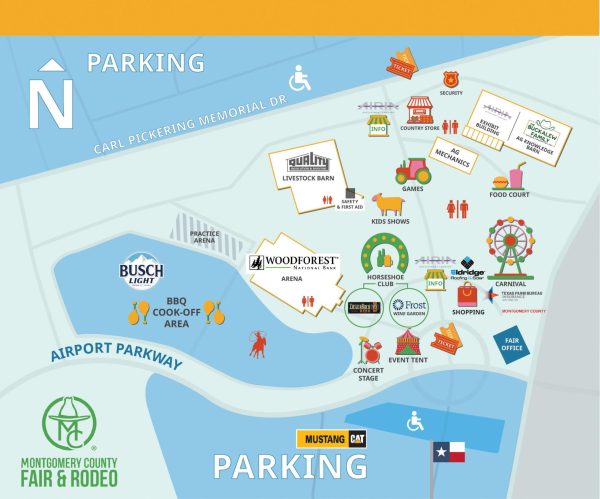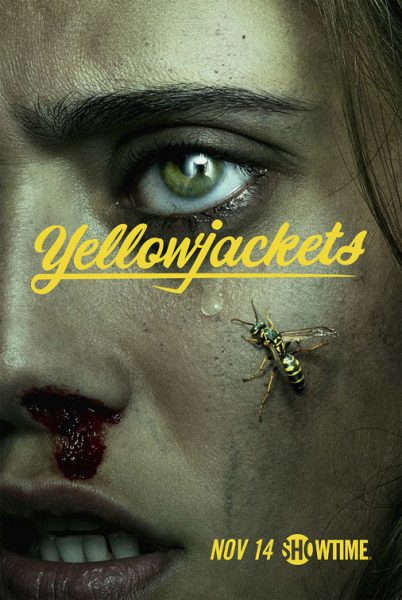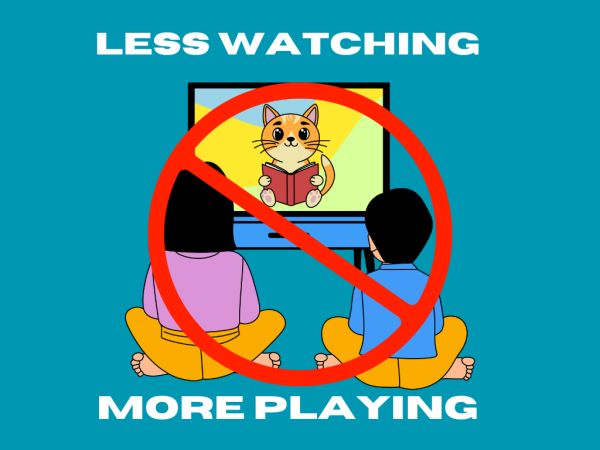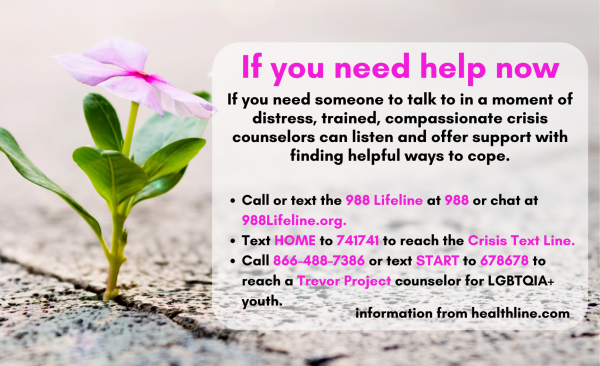Synthetic stories, artificial arts
OpenAI pioneers technology with vast potential
photo or infographic by Jason Clark via Canva
OPENING A DOOR. The developments made by OpenAI could change the humanities as it is known,
As the world becomes increasingly reliant on technology, the development of artificial intelligence has taken center stage. The latest breakthrough in the field is the introduction of chatGPT, a large language model that can hold conversations with humans.
Many people are excited about the possibilities that chatGPT presents.
“I think chatGPT is a game changer,” tech enthusiast John Williams said. “With its ability to understand and respond to human language, it opens up a whole new world of possibilities for how we interact with machines.”
Others, however, are more cautious about the implications of this technology.
“I’m a little scared of chatGPT,” concerned citizen Sarah Johnson said. “It’s one thing for a machine to be able to perform a specific task, but the ability to hold a conversation with a human is something entirely different. I worry about the potential negative effects it could have on society.”
Despite these concerns, the developers of chatGPT are confident in their creation.
“We have taken great care to ensure that chatGPT is not just a machine that can mimic human conversation, but that it is able to understand the nuances and complexities of human language,” lead developer Jeremy Howard said. “We believe that chatGPT has the potential to improve our lives in ways that we can’t even imagine yet.”
This feature story, up until this point, has been completely fabricated by an AI system. The only direction it was given was the prompt “Write a feature story about yourself with quotes from people who are both excited and scared about the new technology.”
Advancements in AI act as a double edged sword, with the development creating headway for cutting out redundancies in writing and code, but also bringing the potential for dishonesty.
The fact that an AI can easily create a complete story, instantly, with only simple instruction can create fierce debate and fear. People in the field of creativity and computer science are already feeling their pressure, as they believe with the advancement, it could replace their work. While this may be a possibility, the creators of ChatGPT have specifically made the AI as an aid, not a source. Much like the initial creation of the search engine, this chatbot can be used as a way to cut out unnecessary and tedious work. Programs that have a simple mistake do not need to be sifted through for hours in order to find the mistake, as the bot will instantaneously revise it. Potential applicability is already in development in the teaching world, as according to Springer Online, teachers who have access to the chatbot would be able to make the bot be able to do simple, time consuming tasks, such as grade inputs or revising.
The emergence of increasingly capable AI has become a pattern in recent years. OpenAI’s other premier product, DALLE-2, has raised eyebrows and suspicions as the art-creating artificial intelligence opens the door for easy creative design and begins to close the door on legitimate digital art. Like ChatGPT, DALLE-2 was trained and continues to train on massive amounts of media in order to generate a fitting response to the prompt provided by the user. Though product quality varies due to the artificial nature of the artist, DALLE-2 is nevertheless able to generate almost anything the user can think of, from an oil painting of a penguin riding a skateboard to a photorealistic portrait of an old horse. Both DALLE-2 and ChatGPT alongside other AI like them present a dilemma: is the ease of creation with the help of these AI worth the suspicion that will be cast on every piece of creative media?
Misuse is still a very concerning problem for the bot in its infantile state. Humanity’s knack for corrupting the incorruptible has not been set aside for this chatbot. Many people have already begun to find ways around the AI’s firewalls through selective wording. The ability to instantaneously write an entire story about an infinite amount of topics threatens the creative writing sector. Many fictional and news writers could potentially become either obsolete or mistrusted because the AI can essentially make anything up at a moment’s notice. In years to come, the consumer of media will have to be even more cautious because, just as the development of photoshop created skepticality when it comes to pictures, this AI will do the same with words.
AI is a remarkable thing. The very word “artificial intelligence” implies that, one day, humanity will bring life to another thinking mind. ChatGPT is an amazing advancement that will only improve as time goes on. It has two paths it can travel down, as it can either be humanity’s most useful assistant, or it can kill the already dying humanities. The question of which scenario will prevail, is something only time will answer. When AI opens its mind’s eye, will it see a way to help, or a way to harm?
Your donation will support the student journalists of Willis High School. Your contribution will allow us to purchase equipment and cover our annual website hosting costs.
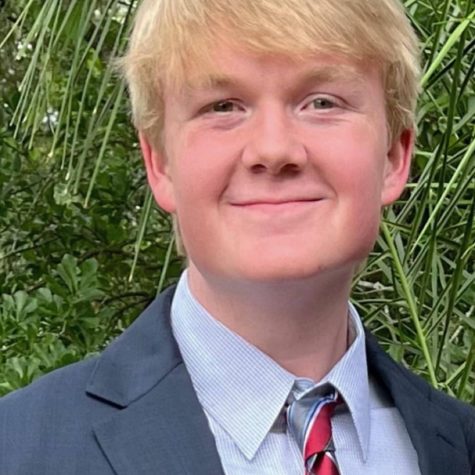
Reid is a senior in his first year of the journalism staff. Last year, Reid participated in multiple UIL journalism events as well as Extemporaneous speaking...
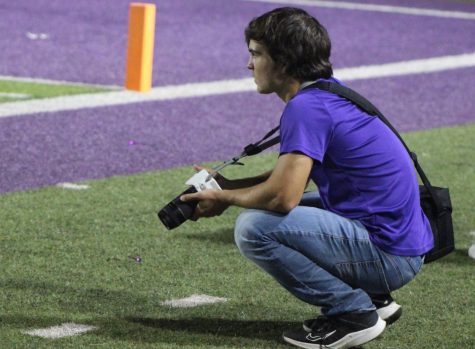
Jason Clark is a senior at Willis High School and is currently enrolled in newspaper and yearbook. Jason is a four-year journalism student and has placed...


